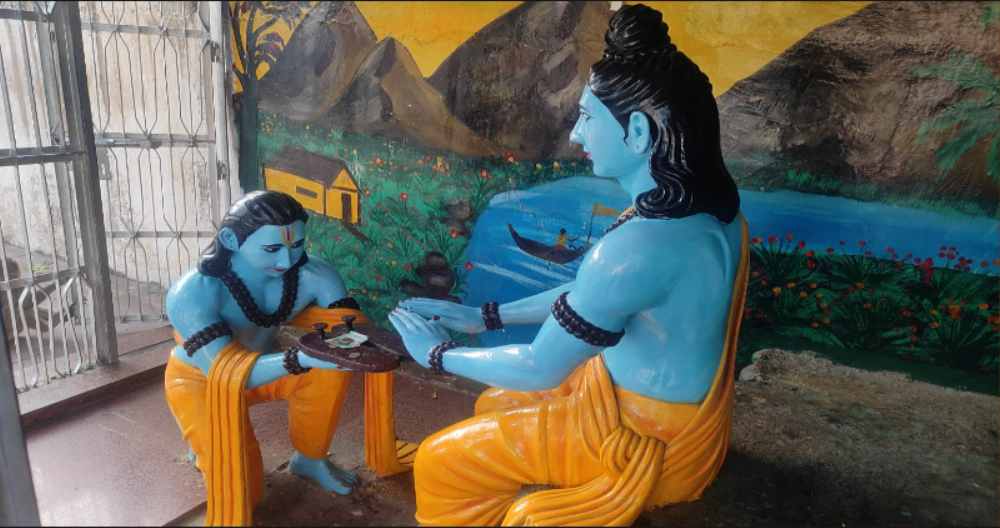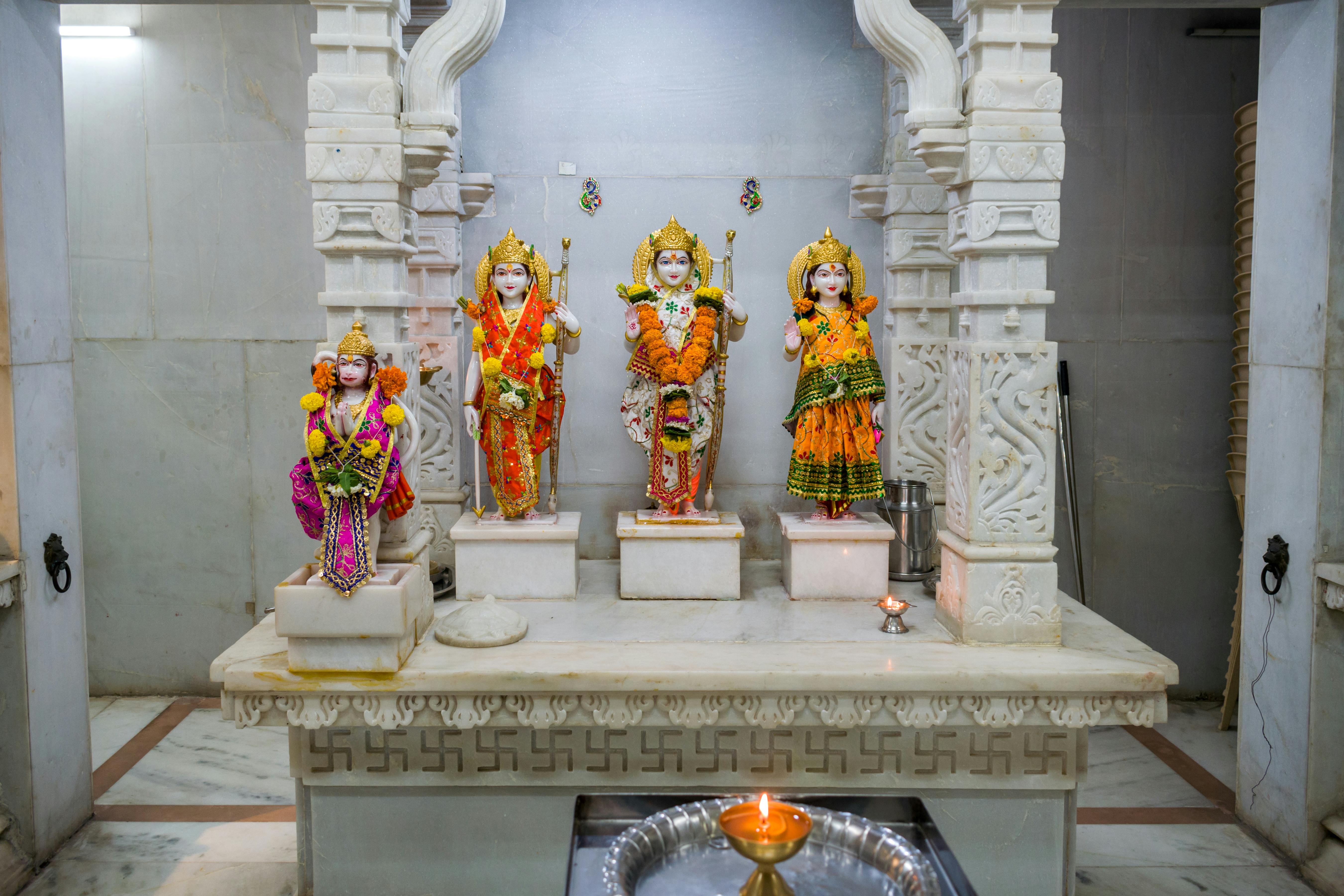O Mother Janaki! Whenever you have the opportunity, please remind Shri Ramchandraji of me. I am known as his servant, I chant his name, and I am devoted to him like a Papiha(Common hawk-cuckoo). I feel a deep thirst for his love, like the devoted Papiha who thirsts only for the rain of Swati Nakshatra. You know that the kind Lord Ram has a very simple nature; he never thinks of his own virtues, the wrongs done by his enemies, the faults of his servants, or the gifts he has given. He tends to forget; he honors those who are not respected anywhere, yet he even forgets that. O Mother! Please tell him not to forget Tulsidas, as he has no support from anyone else in his thoughts, words, and actions, even in his dreams.
Vinay Patrika Verse 42
The Unquenchable Thirst Beyond Earthly Waters
Deep within every genuine devotee resides a thirst that mere worldly pleasures cannot fulfill. Tulsidas eloquently illustrates this divine yearning through the metaphor of the Papiha, a mystical bird that will not drink from any source other than the pure raindrops that fall during the Swati constellation. This thirst transcends the ordinary; it embodies the soul’s desire for a connection with the divine.
How many of us drift through life, chasing fleeting joys, only to discover our hearts remain unfulfilled? The devotee understands this reality early on: that only the nectar of God’s love can genuinely quench the profound longing within us. Like the Papiha, we too must cultivate this sacred discernment to pursue only that which is everlasting, even if it requires us to wait with patience and unwavering faith.
The Humble Appeal Through Mother
Take note of the beautiful humility in Goswami Tulsidas’s method. He does not demand or assume to approach Lord Ram directly. Instead, he asks Mother Sita to act as his advocate. This highlights a deep spiritual understanding that sometimes our prayers are most effective when conveyed through the hearts of those who embody divine compassion.
“Oh, Mother Janki! If you get a chance, please remind Lord Ram about me…”
Mother Sita represents grace, compassion, and the gentle reminder of devotion. She knows her Lord’s heart very well. She understands His nature that He responds not to demands but to true love, not to qualifications but to authentic surrender.
The Divine Nature of Lord Ram
What follows in this verse is perhaps one of the most beautiful descriptions of God’s nature in all devotional literature. Sita is reminded, and through her, we are reminded of the extraordinary qualities that make Lord Ram the refuge of all souls.
Humility
He forgets His own greatness
Forgiveness
He remembers not the crimes of enemies
Compassion
He overlooks the faults of devotees
Generosity
He forgets His own charitable acts
The God Who Neglects His Glory
Picture a God so virtuous that He has no ego. A God who performs miracles but never brags about them. A God who gives freely without keeping track. This is the Lord that Tulsidas talks about, one whose essence is to forget and forgive.
He honors those whom society deems unworthy, and then, astonishingly, He forgets this act of kindness so that no one feels obligated. This is the essence of divine grace: blessings without expectations, love without conditions, and mercy without recalling past mistakes.
“His habit is to forget and forgive…”
What a freeing truth for those who feel unworthy! If God Himself decides not to remember our mistakes, why should we be trapped by them? The call here is to surrender, not in our strength, but in our weakness; not in our worthiness, but in our need.
The Plea: “Urge Him Not to Forget Tulsidas”
Here lies the dilemma of divine grace. The Lord who forgets everything, His glory, His gifts, His greatness, is urged not to forget His devotee. Why? Because while God may disregard His own brilliance, the devotee realizes that being forgotten by God is the only genuine spiritual death.
Goswami ji admits with brutal honesty: there is no hope anywhere else. Not in good actions, not in beautiful prayers, not in holy thoughts. His words, deeds, and even his mind are all imperfect. He stands before the Lord with nothing to give except his total reliance.
And isn’t this the heart of true devotion? To arrive at a point where we stop pretending we have it all figured out, where we stop trying to earn God’s love, and simply acknowledge: “You are my only hope.”
Teachings
1. Cultivate Sacred Longing: Like the Papiha, develop a spiritual thirst that worldly pleasures cannot satisfy.
2. Embrace Humility: Approach the divine not with a list of achievements, but with an open heart acknowledging your need.
3. Trust in Grace: God’s nature is to forgive and forget our shortcomings. Our role is simply to remember Him.
4. Seek Divine Intercession: Sometimes our prayers are carried on the wings of those who embody compassion and grace.
5. Wait with Faith: Like the Papiha waiting for the Swati rain, cultivate patient devotion, trusting in divine timing.
एक भरोसो, एक बल, एक आस, विश्वास। स्वाति-सलिल रघुनाथ-जस, चातक तुलसीदास ॥१॥
“Have one object of faith (Ram), Have one source of Strength (Ram), Have one object of hope (Ram). Just as a chatak bird desires only the raindrops of Swati Nakshatra”







